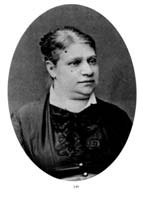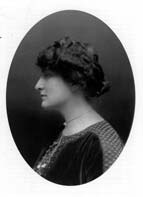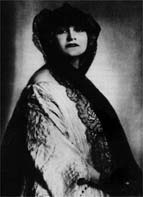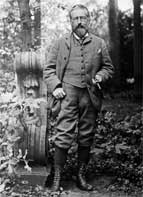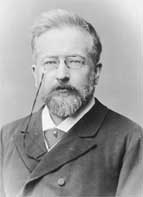The encounter between Mahler and Freud Paulus Manker Joshua Sobol |
||||||||||
|
||||||||||
| So my idea was to have Freud, in a way, saying to him: "You
want an instant psychoanalysis? I can make it to you in half
an hour, if you want." We know that they walked around
in the streets of Leyden, and Freud says that he never met a
person with such a deep insight into psychoanalysis as Mahler
had. And Mahler probably furnished him all the material, telling
him the story of his childhood, how he first got initiated to
music, and the feeling of power that music gave him, the fact
that it gave him superiority over his tyrannical father, that
it gave him a central place in the familiy. And yet there was
that terrible relationship, this painful relationship between
the father and the mother. The father being violent, and abusing,
and beating the mother, and the mother crying, and running out
of the house, and little Gustav listening to that frivolous
folkmusic on the street, and from that moment mixing frivolous
motives with deeply tragic themes in his music. I think that
Mahler almost furnished Freud with an explanation. But what I dared to do in the play is to allow Freud to come out with some "ethnic" explanations to Mahler´s music, and with a kind of an almost "cultural" psychoanalysis by saying: "Listen, my good friend, it has nothing to do with your personal biography. That is a special style of your music. It has a lot to do with your origins, with the fact that you are Jewish. And as a Jew you have no respect for the sublime if it is not mixed with the terrestrian, with the everyday life, with the basic moments of life." Freud says in the play that we Jews know that God is crazy, and that he refuses to undergo a psychoanalysis. So, how can we take him seriously? We cannot. And that´s why, whenever we speak about God we mix a joke into it, and we dismiss him with a joke sometimes. And he says: "That´s what you are doing with your music, because you feel that we are living in a world where the grotesque and the sublime are mixed together, and there is no way to seperate one from the other." And he tells Mahler: "Be yourself. For once accept yourself. Stop trying to be a different person, stop trying to become different. Stop making efforts. Be what you are." And in a way he says to him: "You are her father, o.k. You are twenty years her senior. She lost her father when she was a baby. She remained fixed on the figure of her missing father. Go, and fuck her as her father would have done to her if he dared to do, and if she dared to do what she wanted to do with her missing father." And the moment he gives him that kind of license we hear that something very wonderful happens, a miracle happens, and Alma tells Gropius later that she had a great time with Mahler during his last few months. What I tried to do in that scene, in the meeting between Freud and Mahler, is to go beyond the banalities of psychanalysis. First of all to establish the banal way of dealing with such a meeting, which all the biographers of Freud and of Mahler did, and then saying: Listen, this is the banal version, now let´s go a step further, and see what Freud could have said. And I think that the importance of the meeting is, that Freud could have said to him: "Listen, you are Jewish, you are twenty years her senior, your music is influenced by your origins, your life is influenced by your origins, and go back, and be yourself, and that´s it, and then everything will fall into place." That´s how I see the meeting between the two of them. |
||||||||||
|
||||||||||
Paulus Manker Joshua Sobol |
||||||||||
